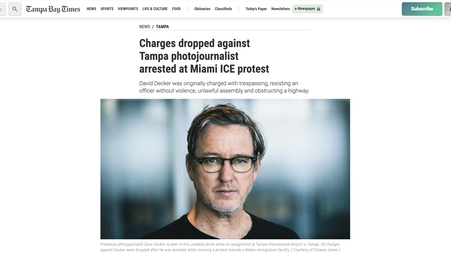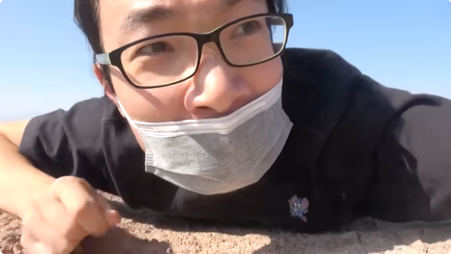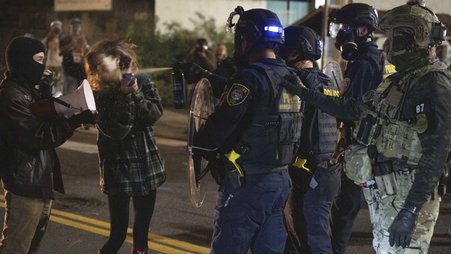
In the days since the nationwide protests over the killing of George Floyd began in Minneapolis, attacks on journalists and press freedom have been recorded at an unprecedented level. The U.S. Press Freedom Tracker, a project of Freedom of the Press Foundation and the Committee to Protect Journalists, as of this moment is investigating or has confirmed 242 such incidents—including physical assaults, arrests, damaged equipment, and more.
For a sense of scale, the Tracker—which is the most complete and systematic record of domestic press freedom violations in the United States—documented about 150 such incidents in the entirety of 2019.
The Tracker team independently investigates each case of a press freedom violation and reports its findings. Its stories are freely available, and the underlying data is accessible for download and further analysis. A complete list of its reported stories on the George Floyd protests is online, and for the first time, due to the overwhelming number of incidents reported since Friday, it is also making interim data available online as it investigates.
These attacks are predominantly, but not exclusively, occuring at the hands of police—law enforcement accounts for some 80% of violent assaults on journalists in our database. (That number does not account for the additional at least 41 incidents of journalists being arrested.)
The press freedom violations have also been widely distributed across the country, occurring in at least 53 different cities spread across 33 states. Minneapolis, where the protests began, is the city with the most individual incidents.
Notable too is the prevalence of images, video, and other documentary evidence of these incidents. An uncharacteristic number have been recorded or in several cases broadcast live. The widespread availability of verifiable evidence of attacks, including journalists catching them on video or posting photographs in the immediate aftermath, influenced our decision to publish preliminary data at this time.
The explosion in attacks on the press really began with an on-air arrest of a CNN correspondent, producer, and operator in Minneapolis on Friday—which drew swift condemnation from FPF and other organizations. There have been hundreds of similar incidents in the days since.
A large portion of the instances of assault and property damage have been targeted at journalists as members of the media. In many more cases, despite displaying press credentials, reporters have been subjected to teargas, pepper spray, and less-lethal rounds that are being used against protesters generally.
Many journalists have expressed uneasiness at "becoming the story" when subjected to assaults or harassment while doing their job. And indeed, it's important to not lose sight of police violence, especially against Black Americans, as the underlying motivation for these protests. But the press plays an important role in documenting, recording, synthesizing, and broadcasting the sentiments and dynamics of this movement and others, and needs to be able to freely operate if we are to make social progress.
In the United States, press freedom is guaranteed by the same First Amendment that ensures protestors the right to assemble and to express grievances with the government. Attempts to intimidate the media or protestors are attempts to chip away at the same underlying principle, and cannot be tolerated in a democratic society.




